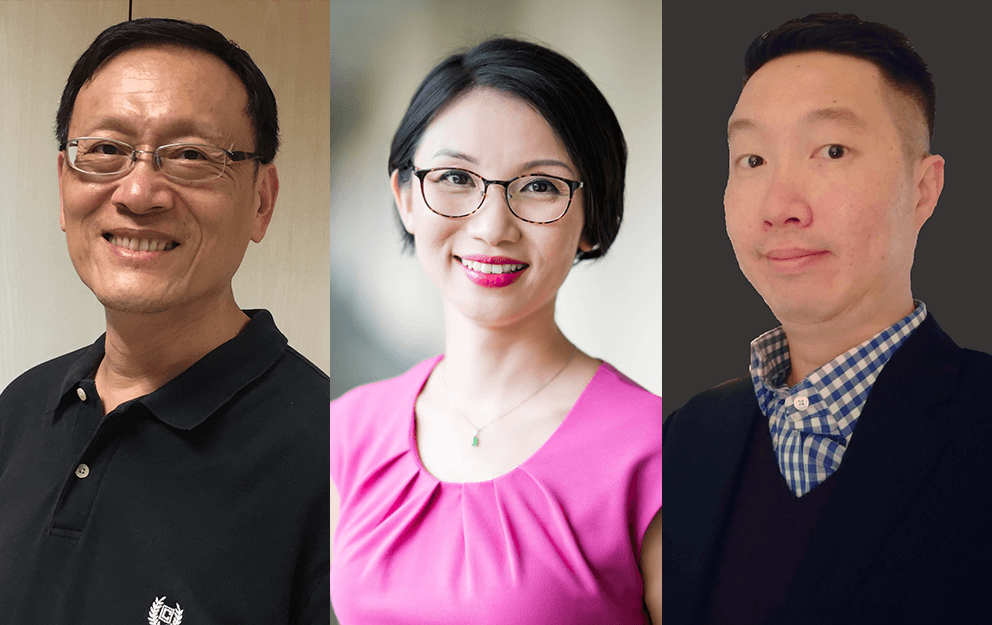The John Cheung Social Media Award recognises the exemplary and innovative use of social media in teaching practices by faculty members of the Nanyang Technological University (NTU). Prize winners are nominated by their respective schools and colleges, and awarded by a judging panel comprising NTU faculty members as well as undergraduate and graduate student representatives.
This year, three NIE faculty members had the honour of receiving the award during the NTU Annual Learning and Teaching Conference on 29 September 2021. They are: Assistant Professor Victor Lim Fei from the English Language and Literature (ELL) Academic Group; Assistant Professor Heng Tang Tang from the Policy, Curriculum and Leadership (PCL) Academic Group; and Associate Professor Victor Chen from the Learning Sciences and Assessment (LSA) Academic Group.
Assistant Professor Lim was recognised for his individual entry on "Designing Synchronous Online Learning with Social Media". According to him, social media can support collective visualisation, extend learning activities after class, facilitate asynchronous online learning, as well as improve real-time online learning experiences. He told NIEWS: “Social media provides a good alternative to video conferencing while exposing students to a different online learning experience. I’ve been using platforms like Facebook and Edmodo to design learning experiences. This has brought about more meaningful teacher-student interactions and collaborative knowledge building, while motivating students to experience learning beyond the bounds of the classroom. Besides, social media platforms make it easier for students to share feedback with one another, and to create digital multimodal artefacts during their learning experience.”
Assistant Professor Heng and Associate Professor Chen were awarded for their entry titled "Enhancing EdD Students' scholarly identities, methods and communities through Facebook". According to them, the doctoral journey is often seen as a lonely process. However, with the help of Facebook, the two professors managed to help students establish stronger connections with their cohorts, while building a community where students feel intellectually, technically and emotionally supported by their peers. Sharing more insights with NIEWS, they added: “The use of a social media platform provides flexibility, allowing students to connect asynchronously. By getting students to post reflections on their research process online, they develop greater confidence in writing for public consumption. We’re also able to see students enhancing their reflexivity as a researcher, and engaging in more intellectual conversations with peers through their reflections.”




